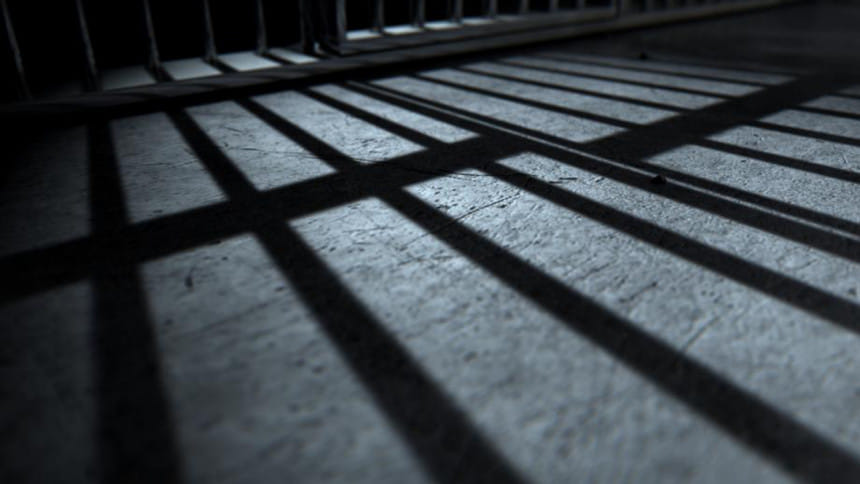Releasing prisoners: An act of justice, not mercy

Since the Covid-19 crisis has hit us hard, we have been expressing much concern for people affected across the board, leaving out detainees in prison. Just because they bear the tag of 'prisoner' does not mean it grants them any less of a right to receive proper health care than others in the society. In fact, according to international human rights law, it is the responsibility of the State to ensure that people in prisons and other places of detention have access to the same standards of health care that are available in the outside community, without discrimination on the grounds of their legal status.
The United Nation's High Commissioner for Human Rights, Michelle Bachelet, urged governments "not to forget those behind bars". This is because Covid-19 can pose an imminent threat to prisoners and staff who live in confined spaces and in close proximity with one another – settings that facilitate transmission of the disease. As highlighted by the World Health Organization (WHO) in its guidance report, people deprived of their liberty are more vulnerable to the Covid-19 outbreak.
There are around 89,000 prisoners at 68 prison establishments across Bangladesh, against the capacity of merely 41,244. Evidently, our prisons are dangerously overcrowded, rendering self-isolation and social distancing necessary for containing Covid-19 nearly impossible. Besides, the prisoners are not just exposed to greater risks due to poor hygiene and nutrition but there is only one doctor available for every 10,000 prisoners. This unequivocally calls for an immediate measure by public authorities to address overcrowding and release inmates to prevent catastrophic rates of Covid-19 infection in prisons.
Our job is not about incarcerating people and throwing away the keys. It is also about ensuring that their fundamental human rights are not violated. Article 32 of the Constitution of Bangladesh guarantees for every citizen the right to life, which has been broadly interpreted through judicial rulings to include right to health. This is an inalienable right, which also forms the constitutional basis to grant prisoners their right to be overall protected, tested and treated for Covid-19. Additionally, article 15 states that it shall be a fundamental responsibility of the State to secure for its citizens the basic necessities of life that includes medical care.
The Government also has international obligations concerning the right to life and health of all citizens under several instruments, one of which is, the International Covenant on Civil and Political Rights (ICCPR). Bangladesh is committed to "treat all persons deprived of liberty with humanity and with respect for the inherent dignity of the human person" and to "protect the right to life of all human beings" under article 10 and article 6 of ICCPR respectively. The UN Standard Minimum Rules for Treatment of Prisoners (known as Nelson Mandela Rules) meanwhile, set out measures to protect prisoners. Furthermore, article 12 of International Covenant on Economic, Social and Cultural Rights, gives everyone the right to "the highest attainable standard of physical and mental health" and requires State Parties to take necessary steps for the "prevention, treatment and control of epidemic, endemic, occupational and other diseases."
In light of the above, the Government should ensure vital medical care, sanitation, proper nutrition and in essence, reduce prison population as urged by the United Nations Human Rights Office. Many countries have already taken positive actions, including Iran, Indonesia and Turkey where tens of thousands of prisoners are being released. The spread of Covid-19 in prisons is not a matter of if, but when. At least 23 prison guards and few inmates in different jails have already tested positive. Although a release of around 3,000 prisoners is not a bad start, an urgent release of a substantial number of prisoners is imperative to effectively stop the spread.
Now, more than ever, authorities should release pre-trial detainees, which makes up 81% of the prison population, specific-at-risk groups like the elderly and sick, pregnant women and people with disabilities, petty offenders (implementing the Probation of Offenders Ordinance 1960) and those detained without sufficient legal basis. Measures that are alternative to custody such as commutation of sentences, probation and early release should be prioritised.
Releasing prisoners is not just a matter of justice but also in the interest of the general public since prisons may escalate Covid-19 transmission beyond their walls. According to WHO, efforts to control the spread of the virus in the community are likely to fail without proper attention to infection control and prevention measures within prisons. Therefore, the time has come for the Government to take bold and swift actions before these prisons become hotbeds for Covid-19. Respecting the human rights of prisoners and providing equal protection during such unprecedented times is indispensable for they are sent to prison "as" punishment and not "for" punishment.
The writer is a Lecturer at the Department of Law, North South University.

 For all latest news, follow The Daily Star's Google News channel.
For all latest news, follow The Daily Star's Google News channel. 



Comments